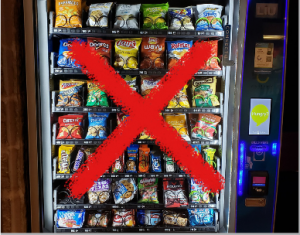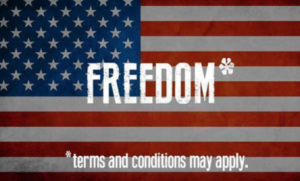By Joseph Iemma
Staff Writer
To call this year’s election cycle ‘once in a lifetime’ may be an understatement. Seriously, who could have foreseen billionaire businessman, turned pop-culture icon (for better or for worse), Donald J. Trump, square off against former First Lady and Secretary of State Hillary Rodham Clinton for the Presidency?
Less than one month away from Election Day, Nov. 8., Trump and Clinton boast disapproval ratings above 50 percent. RealClearPolitics, a poll tracking site that equates the average of all scientific presidential polls, shows 52.3 percent of Americans disapprove of Clinton’s candidacy, while Trump sports a disapproval rating of 58.8 percent, more than six points higher.
As a millennial, and as an aspiring journalist who plans to cast his vote for his first time in this year’s election, this is supposed to be an exciting time for me and the rest of the my generation. Exercising the right to vote is something we are privileged to have. I take my right to vote personally and hold it dearly. I vote for my future, I vote for my family, born and unborn.
This election is a historic one indeed. Which candidate will raise taxes? Which candidate will raise the minimum wage? Who’s going to make college tuition more affordable? What about securing our borders? Protecting us from terrorism, foreign and domestic; and what about the environment?
All of these questions are well worth answering. Heck, it’s our right to know the answers to these questions.
My question is simple, why hasn’t the media held our presidential candidates and their surrogates to the highest standard, ensuring that these questions are answered for the American people?
According to a Gallup poll, released on Sept. 14, “32 percent [of Americans] say they have a great deal or fair amount of trust in the media. This is down eight percentage points from last year.” For the sake of perspective, that figure has steadily decreased since 1999, when, according to Gallup, 55 percent had a favorable view of American mass media.
What is the growing distrust toward America’s mass media attributed to? I decided to find out what Post students thought about both the candidates and the mass media’s coverage of 2016 election.
“I’m undecided, and take pride in it,” said Gabriella Vitolo, a senior business major who has followed this election cycle since before the Iowa Caucuses in February. “I personally feel like I have to decide between the lesser of two evils instead of the better candidate,” she added. As for the media’s coverage of the candidates, Vitolo simply said, “The media is toxic, do your own research.”
Vitolo wasn’t the only millennial who expressed her displeasures in this year’s election cycle. Freshman Bailey Anderson, who’s yet to declare a major, has also yet to decide which candidate to support. “I was planning to support Bernie [Sanders], but now, I really don’t know what to do,” Anderson said in her somber tone.
Pondering the reality of a Trump or Clinton presidency, I asked her what her take was on the media’s coverage of the candidates. Her reaction was priceless.
Grinding her teeth, Anderson shook her head and said, “You wouldn’t even know what these candidates are running on.” Anderson’s enthusiasm or lack thereof was so prevalent that, she asked to take “no more questions” on the matter.
Not all students feel negatively about the candidates. Jayce Fuller, a sophomore education major, said, “I plan to support the GOP [Republican] nominee.” Fuller was quick to make note that he originally supported the Republican Senator from Florida, Marco Rubio, and that his support for the GOP comes down to ‘economic principle’.
As for the debates, Fuller said, “They’re a circus, entertaining, but a circus. No one sticks to the issue, the only thing the debates are good for are ratings.” Fuller echoed a sentiment conveyed by others on campus.
According to the Nielsen Ratings systems, “66.5 million” people nation-wide watched the second debate. Astonishing, yes, but not nearly as much as the “record-setting 84 million” viewers who watched the first debate, all across 13 television channels.
Yet, despite the record-setting rating, the debates have left a ‘bad taste’ in the mouths of Post students, according to Mohammed Boydajin, a senior biology major. “I get it, Trump’s recent tape from Access Hollywood from 11 years ago isn’t going to pay my bills, and Bill Clinton’s affairs aren’t going to get me a job,” he said.
Boydajin said he plans to vote third party, which according to the RealClearPolitics average, is right on pace for voters under age 30 after the second debate. Libertarian Gary Johnson and Green Party Candidate Jill Stein are polling at collectively at 39 percent in a four-way race; Clinton, 41 percent, Johnson 23 percent, Stein, 16 percent, and Trump, 9 percent.
Oct. 19 it the third and final Presidential Debate between Trump and Clinton. Hosted by Fox News’s Chris Wallace, the third debate will have America’s undivided attention, in large part because there are no prime-time NFL games on television.
As polls tighten, it’ll be interesting to see which candidate comes out on top. Historically, the final debate doesn’t draw as many viewers as the two previous debates via Nielsen ratings system. For those still undecided, this debate may serve as a pivotal factor in their decision making. All the American public is asking for, and deserves, is a policy-oriented debate, not a reality television show.





Be First to Comment